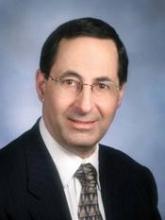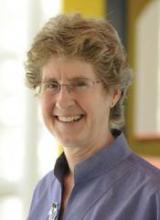When the U.S. Preventive Services Task Force recommended against prostate-specific antigen-based screening in men of any age this spring, an uproar swiftly followed. Evidence was dissected; cancer survivors and stakeholders lambasted the decision as shortsighted, and still others endorsed the recommendation as a long overdue nod to science.
Similar fallout erupted in November 2009 when the task force recommended against routine screening mammography in women younger than age 50 years. Only this time, critics charged that science had taken a back seat to politics, characterizing the decision as a harbinger of rationing under President Obama’s health care reform.
Less contentious so far are new recommendations that the annual Pap smear screening for cervical cancer should be pushed back to every 3 years and that low-dose lung CT screening be offered to heavy smokers. Time will tell whether the former is accepted in clinical practice and the latter can make the leap from clinical trial strategy to national guideline.
Given the complicated, emotionally charged nature of cancer screening and the political forces still at play, could another maelstrom be far off?
"There are a lot of misconceptions out there, in part because for so many decades, the messages have been so strong, they sometimes leaped ahead of the evidence," Dr. Barnett Kramer, director of the division of cancer prevention at the National Cancer Institute (NCI), Bethesda, Md., said in an interview.
When advocacy groups such as the American Cancer Society (ACS) first formed, strong, simple messages were needed to get Americans even to utter the word cancer out loud.
Over time, cancer screening messages have evolved into sound bites that almost always follow the very strong presumption that early detection means a better chance for survival, said Dr. Kramer, who described this as a serious oversimplification of the principles of screening. By its very nature, a screening test will always advance the date of diagnosis, but this may not benefit the patient.
"Simply saying that screening increases survival doesn’t convey any useful information," he said. "You really need to know what the effect of the screening test is on the risk of dying – that is the mortality rate, and that’s a different calculation from simply measuring the duration of life from the day of diagnosis to death."
Dr. Virginia Moyer, chair of the U.S. Preventive Services Task Force (USPSTF), agreed that some advocacy groups "absolutely oversell the benefits of screening and completely ignore the harms" that screening and medical interventions can cause. The perception among the general public is that if you screen and find something, you have therefore saved a life.
She argued in an interview that scientific groups such as the task force have provided a more balanced message, but admits the scientific community has made its own mistakes.
"Our concept at the time that PSA screening was developed was that if you had cancer in you, it would inevitably grow and kill you if you didn’t do something about it," she said. "That’s what we thought all cancer was about and we just turned out to be wrong. A huge proportion of cancers never do anything and that’s the piece we didn’t know."



